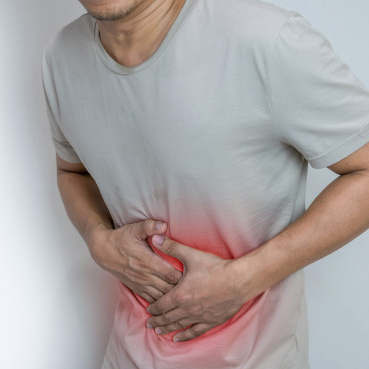Maintaining a healthy prostate is essential for men’s overall well-being. While genetic factors play a role, lifestyle choices such as diet and exercise can significantly impact prostate health. In this article, we will explore the importance of a balanced diet and healthy lifestyle practices for optimizing prostate health.
There are several factors that can influence prostate health.
These factors include:
Age:
Prostate health is often affected by the aging process. As men get older, the risk of developing prostate conditions such as benign prostatic hyperplasia (BPH) or prostate cancer increases. Regular check-ups and screenings are essential for early detection and management of prostate-related issue
Family History:
Having a family history of prostate conditions, particularly prostate cancer, can increase the risk of developing similar conditions. If a close family member, such as a father or brother, has had prostate cancer, it is important to inform healthcare providers for appropriate screening and monitoring.
Hormonal Factors:

Hormones, particularly testosterone and dihydrotestosterone (DHT), play a significant role in prostate health. Imbalances in these hormones or increased sensitivity of prostate cells to these hormones can contribute to the development of prostate conditions.
Ethnicity:
Ethnicity has been found to be a factor in prostate health. For example, prostate cancer is more common among African-American men, and they are also more likely to develop aggressive forms of the disease. Understanding one’s ethnic background can help inform healthcare decisions and screening recommendations.
Diet and Lifestyle:

Diet and lifestyle factors can impact prostate health. A diet high in fruits, vegetables, whole grains, and lean proteins, along with regular physical activity, can contribute to better prostate health. On the other hand, a diet high in saturated fats, processed foods, and low in fiber may increase the risk of prostate conditions.
Obesity:

Being overweight or obese has been associated with an increased risk of prostate conditions, including prostate cancer and BPH. Maintaining a healthy weight through a balanced diet and regular exercise is important for overall prostate health.
Smoking and Alcohol Consumption:
Smoking and excessive alcohol consumption have been linked to an increased risk of prostate cancer. Quitting smoking and moderating alcohol intake can have a positive impact on prostate health.
The Role of Diet:
Embrace a Nutrient-rich Diet:
Consuming a variety of fruits, vegetables, whole grains, lean proteins, and healthy fats is crucial for prostate health. These foods are rich in vitamins, minerals, antioxidants, and phytochemicals that promote a healthy prostate.
Lycopene:
Tomatoes contain lycopene, a powerful antioxidant associated with prostate health benefits. Cooked tomatoes, tomato products, and sauces are particularly beneficial as they enhance lycopene absorption.
Include Cruciferous Vegetables:

Broccoli, cauliflower, Brussels sprouts, and kale are part of the cruciferous vegetable family. They contain compounds like sulforaphane, which may support prostate health.
Focus on Omega-3 Fatty Acids:

Incorporate sources of omega-3 fatty acids, such as fatty fish (salmon, mackerel, and sardines), flaxseeds, and walnuts. Omega-3s have anti-inflammatory properties that may help maintain a healthy prostate.
Limit Processed Foods:
Reduce the intake of processed foods, refined sugars, and unhealthy fats. These foods can contribute to inflammation and negatively impact prostate health.
Lifestyle Practices:
Regular Exercise:

Engaging in moderate-intensity exercises like brisk walking, swimming, or cycling for at least 30 minutes most days of the week can be beneficial for prostate health. Exercise helps maintain a healthy weight and reduces the risk of prostate problems.
Maintain a Healthy Weight:
Obesity and excess body fat have been linked to an increased risk of prostate issues. Maintaining a healthy weight through a balanced diet and regular exercise is crucial.
Stay Hydrated:

Drinking an adequate amount of water daily helps flush out toxins from the body and promotes overall prostate health.
Limit Alcohol Consumption:
Excessive alcohol consumption can increase the risk of prostate problems. If you choose to drink, do so in moderation (up to one drink per day for men).
Avoid Tobacco:

Smoking has been linked to an increased risk of developing aggressive forms of prostate cancer. Quitting smoking or avoiding tobacco products altogether is vital for prostate health.
By adopting a nutritious diet and making positive lifestyle choices, you can actively promote prostate health. Emphasizing a nutrient-rich diet, regular exercise, and maintaining a healthy weight are essential practices. Remember, it is never too late to start prioritizing your prostate health. Consult with your healthcare provider for personalized advice and screenings to ensure a proactive approach to your well-being.




